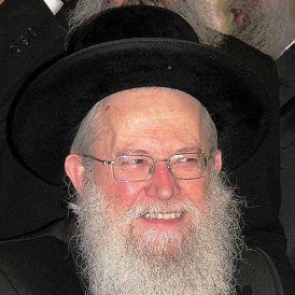Actor Jon Voight attacked President Obama in an open letter published in the Washington Times. Telling the President that he “will be the first American president that lied to the Jewish people, and the American people as well, when (he) said that (he) would defend Israel.” The letter continues by asserting that Mr. Obama is “play(ing) a very dangerous game so (he) can look like a true martyr.”
Were this letter not making the rounds among so many different Jewish circles, I might not have paid much attention. But when I get dozens of forwards and multiple phone calls about one letter, it pays to pay attention. And in this case, while I recognize the sincerity of Mr. Voight’s concerns, the way in which he frames them typifies much that is wrong with contemporary debate, especially about Israel.
Without challenging his claims that President Obama is both putting Israel “in harm’s way” and promoting anti-Semitism throughout the world, both of which are things about which reasonable people can disagree, why must Voight resort to the Joe Wilson School of public debate? Why must it be that those with whom we disagree are necessarily lying? Can’t they simply be wrong?
Of course, it is more viscerally satisfying to call the President a liar, but what evidence do either Mr. Voight, or any of those who are circulating his letter, adduce to prove that claim? Answer, none.
Ultimately, this open letter substitutes personal invective for reasoned argument. Sadly, that is increasingly typical of all public debate in this country, especially about issues of real concern, and nobody is well served by it.
Those who agree with Voight may get a quick hit of moral superiority and righteous indignation off of his letter, but will anyone not already in agreement with them be convinced? Of course not! So what’s the point? Clearly, it’s not to make things better. And if it’s not to make things better, even as understood by Voight, he should put down his pen until he figures out a real answer to the question of what would.
It’s also of concern any time people confuse actions with motives, as does Mr. Voight. How does he know that the President does what he does in order to “look like a martyr”? Perhaps Mr. Obama has taken the positions he has because he thinks they are best for America and possibly, though this will be especially hard for Voight to understand, also for Israel.
Of course, the President may be wrong, but that doesn’t mean he is insincere or conniving. It just means he is wrong. Perhaps, especially as Mr. Voight is fond of celebrating Jewish wisdom, he might recall the rabbinic prescription to assume the best about those with whom we deal. Nowhere do the sages of the Talmud teach that presuming the best about each other should silence or even limit debate. In fact, a rabbi without a good debate is barely a rabbi!
It’s precisely because we need real and vigorous debate about important issues, including Israel – debate with fierce proponents from both the left and right, that we need an ethic of fierce debate. Without that ethic, debates become shout fests, popular involvement becomes mob-ocracy, and we all ultimately lose, regardless of which party happens to hold sway at any given moment.

